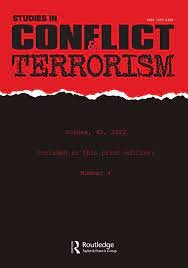Florian Weigand
Photo: DIIS
Florian Weigand
Co-Director
Email: weigand@armedgroupscentre.org
Social media: LinkedIn | Bluesky
Florian’s work focuses on armed conflict, smuggling, and questions relating to authority and legitimacy. He is particularly interested in the role and perspectives of non-state actors and marginalised groups, including insurgents, rebels, criminal groups, victims of violent conflict and civil society activists.
He has published widely on conflict zones, borderlands and other complex environments, how they function and are governed. Florian is the author of books such as Waiting for Dignity: Legitimacy and Authority in Afghanistan (2022) and Conflict and Transnational Crime: Borders, Bullets & Business in Southeast Asia (2020). He also is the co-editor of the Routledge Handbook on Smuggling (2021) and the co-host of the podcast Beyond Compliance: In Conversation on armed groups and international law.
Florian is a Research Associate at the London School of Economics and at the Geneva Graduate Institute and he is a Visiting Researcher at the Danish Institute for International Studies.
In addition to academic roles, he has worked extensively in the policy sector. Florian has served as a Political Affairs Officer for the UN in Afghanistan, worked in various roles and countries for the development agency GIZ, and has advised organisations such as UNODC, the World Bank, the UK Foreign, Commonwealth and Development Office, and the Norwegian Refugee Council.
Florian did his PhD at the London School of Economics. He holds an MSc in Development Management from the LSE and an MSc in Global Governance and Diplomacy from the University of Oxford.











